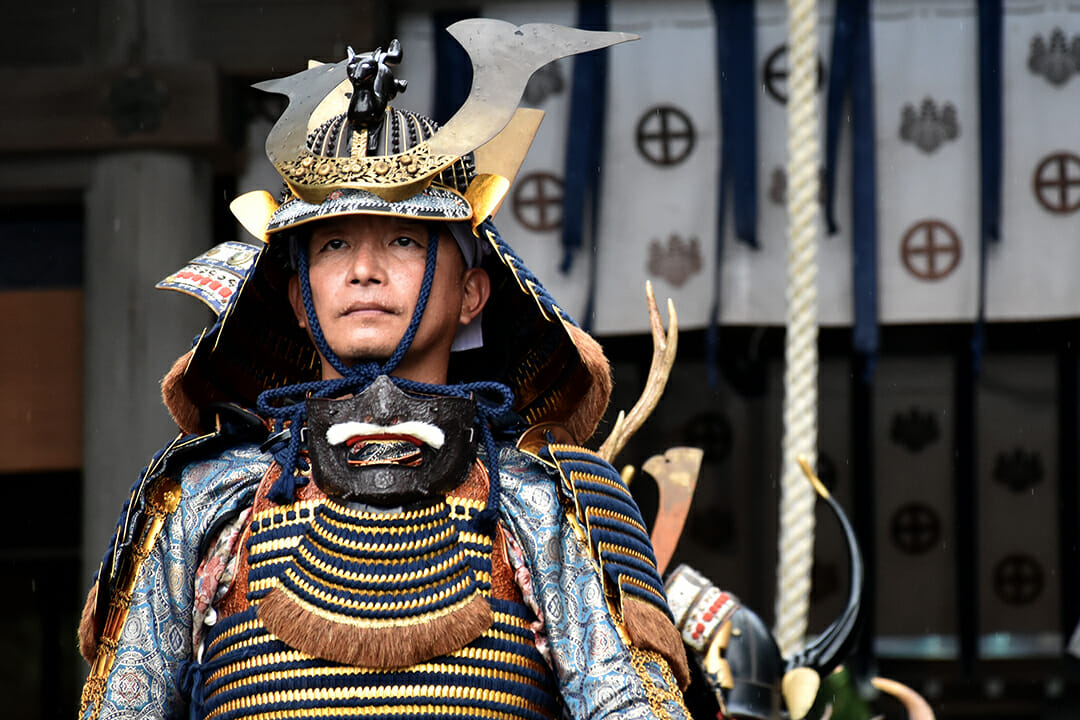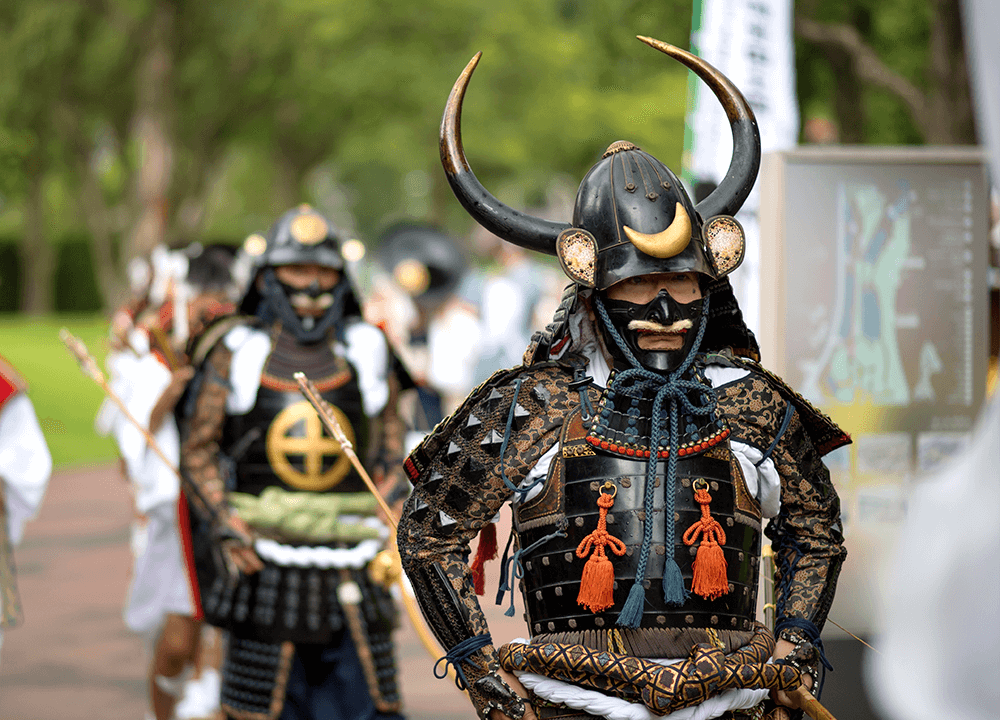
The Code of the Samurai
Bushido – the code of the samurai, is often cited as being the set of ethical principles that governed the behaviour and way of life of the samurai in feudal Japan. Emphasizing loyalty, honour, and self-discipline, bushido has become known around the world as part of the legacy of the samurai class.
The reality is that bushido never really existed as a codified set of behaviours or even a written code. Instead each domain had house codes called kakun that detailed the ideal behaviour of warriors. These were not strictly laws, but rather guidelines to be followed.
In Kagoshima, the Shimazu clan had their own unique education system for the samurai class, and one of the basic teachings they learned was called the Jisshin-ko Iroha-no-uta, written by Lord Shimazu Tadayoshi in the mid-1500s.
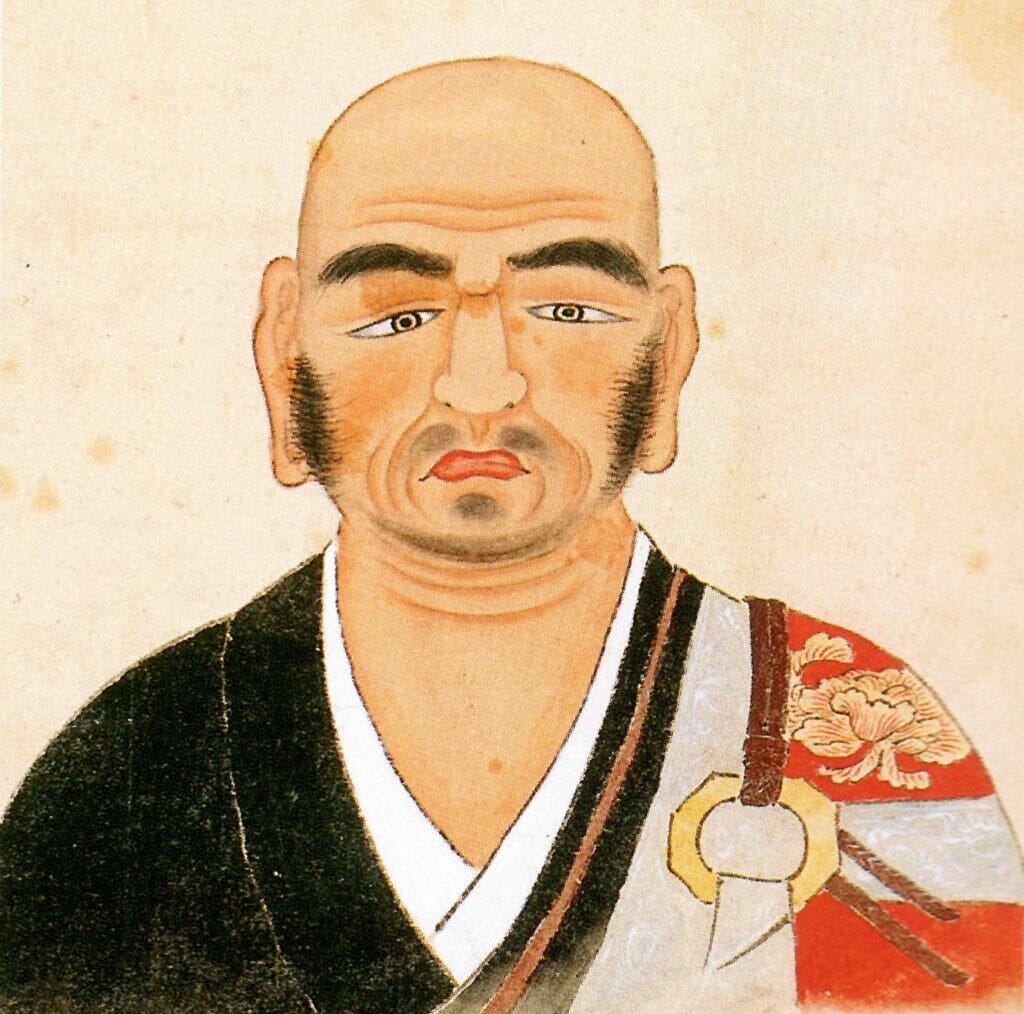
Shimazu Tadayoshi – Leader of Samurai
Tadayoshi was born in 1492 as a member of the Izaku branch of the Shimazu family. Tadayoshi’s father died when he was very young, and he was raised by his mother and his grandfather, Shimazu Hisayasu.
Hisayasu was killed in battle in 1500, when Tadayoshi was age eight. Tadayoshi’s mother remarried into the Soshu branch of the Shimazu family, meaning that Tadayoshi would become the head of two branches of the family.
Tadayoshi used his position to skillfully quell the civil war raging between the different branches of the Shimazu family, unifying the clan, taking control of the Satsuma domain and setting the stage for his four grandsons to move out and conquer the whole of Kyushu.
He was highly interested in both Confucianism and Zen Buddhism of the Soto school, and took tonsure in 1527, adopting the name Jisshin.
Tadayoshi wrote a series of 47 short poems about moral behaviour befitting of warriors. Also known as the Jisshin-ko Iroha-no-uta, these precepts, each beginning with a letter of the traditional Japanese alphabet, were used to educate the samurai of Satsuma province in basic morals for over 300 years.
Tadayoshi died at the ripe old age of 77 in 1568 and is remembered as one of the most influential leaders in the history of the Shimazu clan.
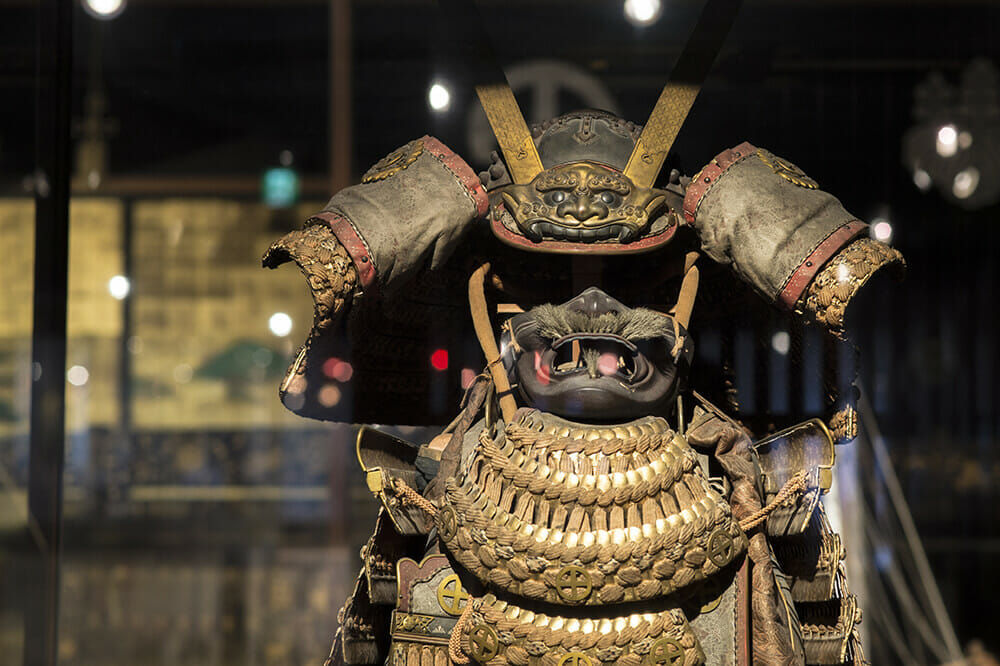
The Shimazu Iroha-no-uta
The full Jisshin-ko Iroha-no-uta, the code of the samurai of Satsuma, is reproduced below with an English translation and explanation of each verse. The content of the treatise is sometimes vague and can be difficult to understand without a knowledge of some of the Chinese classics. These references are described as necessary in the text.
い いにしへの道を聞きても唱へても わが行に せずばかひなし
Listening to or repeating the wisdom of old is useless without action.
It is interesting that the first precept in this collection cautions against the meaningless memorization and repetition of ancient knowledge. Tadayoshi clearly intended for his teachings to be implemented instead of merely being pondered for self-satisfaction. This should be kept in mind when studying the remaining 46 precepts.
ろ 楼の上もはにふの小屋も住む人の 心にこそは 高きいやしき
Both the man who lives in a grand mansion, and he who lives in a squalid shack may own a palace in their hearts.
Outward appearances, class and wealth are unimportant compared to a correct heart and mind.
は はかなくも明日の命を頼むかな 今日も今日と 学びをばせで
Don’t put off until tomorrow what you can achieve today. Make learning an everyday pursuit.
Don’t put off tasks until later that can be completed today. We should not forget that learning is something that we should focus on every day.
に 似たるこそ友としよけれ交らば 我にます人 おとなしきひと
Those who resemble you in character make good friends but associate with superior men to better yourself.
While people who are like us in character might make good friends and entertaining conversation, we should strive to aim higher and socialize with refined and intelligent people to better ourselves.
ほ 仏神他にましまさず人よりも 心に恥ぢよ 天地よく知る
Gods and Buddhas reside in the heart, nowhere else. Feel shame for your wrongdoings, for heaven sees all.
Even if we think no one is watching heaven will see all of our wrongdoings. Since the Gods and Buddhas actually exist in our hearts, we should know that our actions are wrong and feel shame even without being told.
へ 下手ぞとて我とゆるすな稽古だに つもらばちりも やまとことのは
Do not let your lack of skill diminish your will to practice. Even dust when piled up becomes a mountain.
We should never become lax in our practice of the arts just because we feel unskilled or that we are not progressing. Even the tiniest improvements will give spectacular results over time.
と とがありて人を斬るとも軽くすな 活かす刀も ただ一つなり
Do not think lightly of cutting a man down, even a guilty criminal. There is only one chance to wield the sword that gives life.
While appropriate punishment for wrongdoing is important it is vital to think deeply before taking a life. Leniency should be considered, as there is only one chance to take or spare a life.
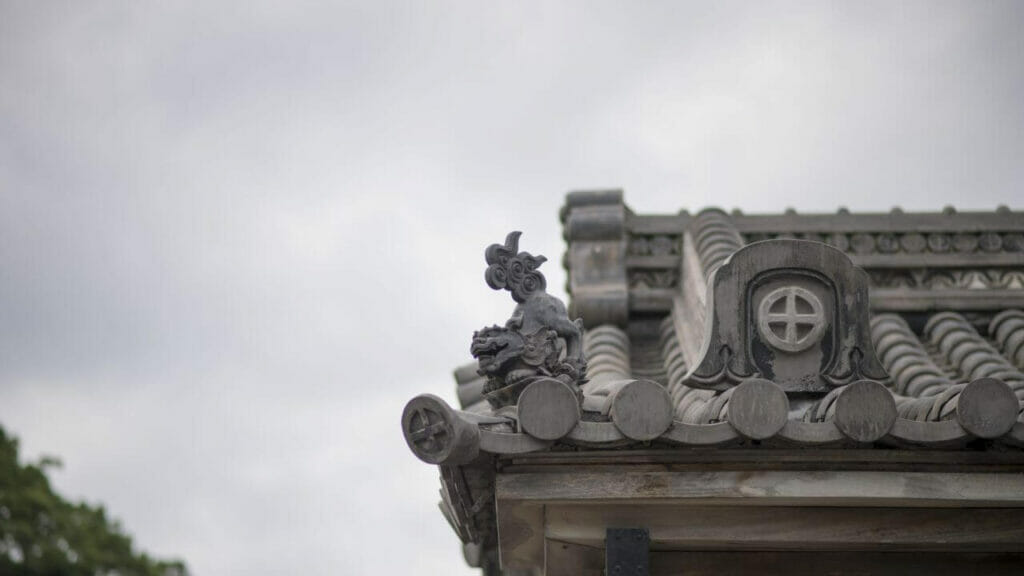
ち 知恵能は身につきぬれど荷にならず 人は重んじ はづるものなり
No matter how much you carry, skills and knowledge are never a burden. Others respect the learned man and feel shame at their inadequacy.
Learning and skills never weigh us down, no matter how much we have. Well-educated and skillful people are respected and inspire others to also try their best. We don’t learn only for ourselves, but also to bring up the level of those around us.
り 理も法も立たぬ世ぞとてひきやすき 心の駒の 行くにまかすな
Even when world is in chaos, do not loosen the reigns and leave your actions to be decided by the wild mind-horse.
Even when the world around us in in chaos we should not give in and do as we please. The mind is compared to a horse, that if not controlled will wander uncontrolled in its own direction. The human mind is weak and easily influenced, so even those who are normally trustworthy may even let us down. At this time we should think deeply about our morality and make the correct decision.
ぬ 盗人はよそより入ると思うかや 耳目の門に 戸ざしよくせよ
People think a thief will enter by the door or window, but real scoundrels enter through the eyes and ears. Guard them well!
While most people believe that thieves and wrongdoers will break into their houses and steal their possessions, it is the people who try to poison our thoughts who we should be most careful of. In the same way that we lock our houses to protect ourselves, we should also guard ourselves against manipulation by unscrupulous individuals.
る 流通すと貴人や君が物語り はじめて聞ける 顔もちぞよき
When the lord or your elders speak of something which you know well, feign ignorance and act as if you have heard it for the first time.
When our superiors talk about a topic which we know about, we should look interested and pretend that we are hearing it for the first time. To interrupt your seniors or to try and show off your knowledge about a subject can be interpreted as rudeness or impudence. Instead it is better to simply listen and see if there is anything extra you can learn.
を 小車の我が悪業にひかれてや つとむる道を うしと見るらん
Carry guilt for your laziness like a man dragging a cart. It will weigh you down and the road ahead will be fraught with suffering.
Allowing ourselves to be lax and undisciplined will come back to us later and make the work we have ahead of us unbearable. Instead, it is better to exercise discipline and deal with what we need to do seriously.
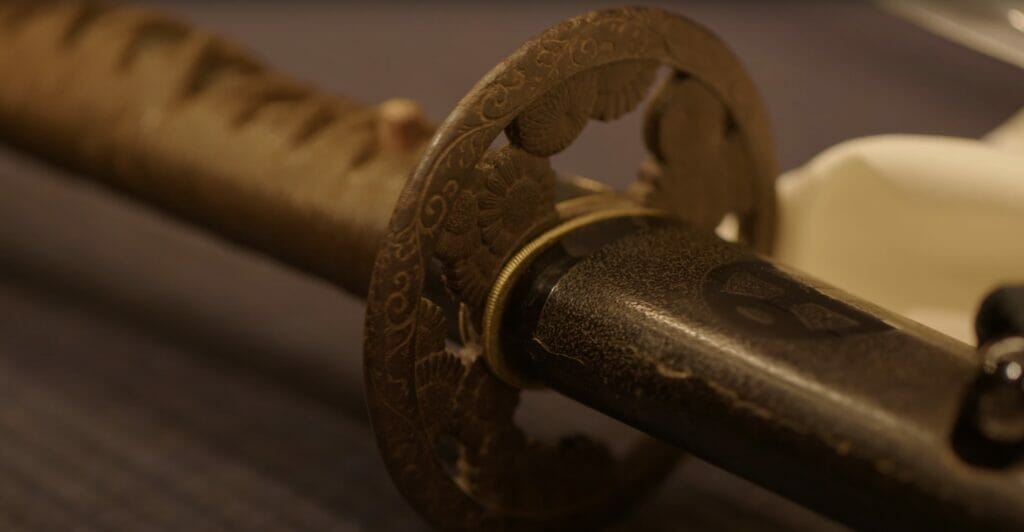
わ 私を捨てて君にしむかはねば うらみも起こり 述懐もあり
In serving your lord, cast off your ego and selfishness or you will be consumed by bitterness and regret.
When we work in an organization, there are times that we must forget about our ego and get on with the work we have to do. If we do not do this we will only build up resentment and bitterness about our position and will prevent ourselves from progressing.
か 学問はあしたの潮のひるまにも なみのよるこそ なほ静かなれ
Practise learning from morning to afternoon, but especially in the quiet of the evening.
We must set about study diligently from morning through the afternoon, but the best time for learning is at night when there is quiet and there are few distractions. In the modern world it is increasingly difficult to set about self-improvement when surrounded by technology which can easily preoccupy us, but even if we have a little time each evening to dedicate to learning we will surely benefit.
よ 善きあしき人の上にて身を磨け 友はかがみと なるものぞかし
Know the good and bad of others. Use your friends as a mirror to cultivate yourself.
We must ascertain the good and bad points in other people as it is very difficult to see them in yourself. Then using our closest friends like a mirror examine their behavior to see where we might be at fault. The point here is not to criticize the behavior of other people, simply to use it as a guideline for the improvement of ourselves. This also perhaps hints at the fact that keeping bad company will only lead to the degradation of our own character.
た 種子となる心の水にまかせずば 道より外に 名も流れまじ
Water the seeds of wickedness that reside in your mind and you will stray from the righteous way, with your reputation in tow.
We must avoid indulging the evil thoughts that we have as they will ultimately lead us away from the true path and spoil our reputation. Instead we must remove these “seeds of wickedness” and cultivate a righteous mind.
れ 礼するは人にするかは人をまた さぐるは人を 下ぐるものかは
Are manners and etiquette really for the sake of others? Look down on other people, and you will be looked down on yourself.
We must not make the mistake of thinking that correct manners and etiquette are for the sake of other people. Manners and etiquette are for our own development, and treating other people disrespectfully, regardless of their position in society will only lead to others looking down on us as people of inferior character in return.
そ そしるにも二つあるべし大方は 主人のために なるものと知れ
There are two ways in which retainers speak ill of their superiors. Know which is self-serving, and which is for the sake of the lord.
Retainers will generally speak ill of their superiors in one of two ways. The first is purely for self-serving means in order to justify their own actions and raise their position. The second is because they genuinely care about the situation at hand and are willing to speak up in order to have it resolved. This teaching warns us to determine which is which and to act accordingly.
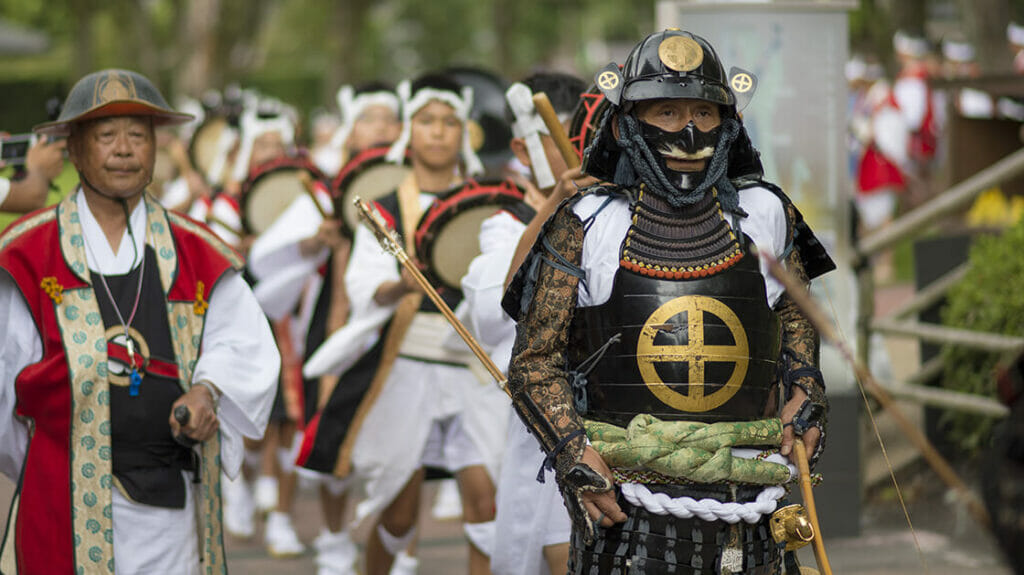
つ つらしとて恨かへすな我れ人に 報い報いて はてしなき世ぞ
Holding grudges against others will cause them to hold grudges against you in return. Stop this cycle or it will continue endlessly.
Even if others wrong us or cause us to suffer, it is better not to hold a grudge against them. Negative feelings towards others will only breed the same reaction from them in kind and will cause an unending cycle of misery. Rather than blaming other people we should take the moral high ground and refuse to become involved, sparing both oneself and the other person from unnecessary grief.
ね 願わずば隔もあらじ偽の 世に誠ある 伊勢の神垣
The deity of Ise is just, though the world is wicked. If your wishes are sincere then they will surely be granted.
The twentieth teaching of the Iroha-no-uta refers to the deity of the Ise Grand Shrine, the sun goddess Amaterasu. Although the world around is unpredictable and full of wickedness, if we have conviction in righteousness and work hard then the Gods and Buddhas will surely lend us the power to achieve our goals. Essentially this teaching is a lesson to keep believing that we can succeed, and never be brought down by the sometimes harsh realities of the world around us.
な 名を今に残し置ける人も人 こころも心 何かおとらん
Those who did great things were people just as we are, with the same heart and mind. Never, then, underestimate what you may be able to achieve.
Even the great people of the past, whose lofty achievements seem totally beyond our reach were only humans as we are, with the same heart and mind. Considering this it seems unreasonable to doubt our own abilities and assume that we ourselves cannot reach the heights of the historical figures that we look up to.
ら 楽も苦も時過ぎぬれば跡もなし 世に残る名を ただ思ふべし
With time pleasure and pain vanish without a trace. Think instead of the name you will leave in this world.
Pleasure and pain are fleeting and will fade away with time. Instead of worrying about these daily trivialities it is better to get on with our life and work, thinking of the reputation and name that we will leave for our descendants.
む 昔より道ならずして驕る身の 天のせめにし あはざるはなし
Since ancient times those who arrogantly went against the way have always felt the vengeance of heaven.
Those who go against the way will be punished by the wrath of heaven, and this has been the case since ancient times. What is “the way”, though? Essentially it relates to the fundamental principal underlying our lives. This can be expressed through arts and skills, and even through our daily lives in society.
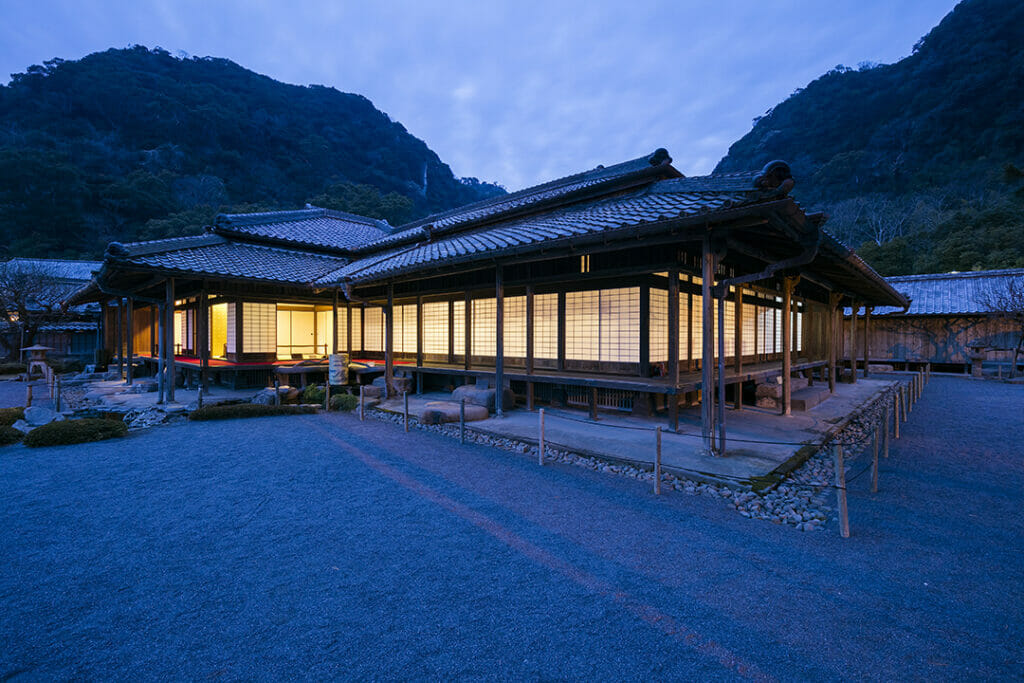
う 憂かりける今の身こそはさきの世と おもへば今ぞ 後の世ならん
The troubles of this life are the result of karma from past lives. Remember then that the actions of this life will determine your fate in the next.
The suffering and troubles we face in our lives are the result of karma from past lives. Since our past lives influence the present, we should be mindful that our present life will influence the future as well. The talk of past and future lives is fairly common in Buddhist religions. Whether this is taken to literally mean reincarnation, or simply as a metaphor for the fleeting moments of our everyday lives is largely irrelevant. This passage guides us to reconsider the cause and effect born out of our actions, and to be mindful of our conduct and its potential repercussions.
い 亥に臥して寅には起くと夕露の 身を徒に あらせじがため
The wise men of old would sleep at ten and rise at four. Life is as fleeting as the evening dew. Waste not a moment!
The great men of the past would go to sleep at ten and wake up at four in the morning to concentrate on learning. He compares our life to the evening dew which settles and is gone in no time at all. This is a common trend not just among the great leaders of the past. Many top CEOs and business leaders today have very stringent time schedules which involve getting up early to finish their many tasks each day.
の 遁るまじ所をかねて思ひきれ 時にいたりて すずしかるべし
Prepare yourself to confront the unavoidable. When the time comes your mind will be at peace.
Someday the lord may call on his samurai to risk their lives, and by thinking on this each day that the mind can be trained to be calm when the crucial moment comes.
お おもほえず違うものなり身の上の 欲をはなれて 義を守れ人
It is easy to stray from the way without noticing. Cast off your desires and tread the righteous path.
We are easily led astray by our desires, and without noticing can easily stray from the path of righteousness. By being mindful of this inherent human weakness, we can strive to lead a just and decent life. This concept of self-control is inspired by the Confucian analects and summarized well in the maxim “A gentleman should be watchful when he is alone”. When nobody is around to pass judgement, who else is there but yourself to account for your actions?
く 苦しくも直進を行け九曲折の 未は鞍馬の さかさまの世ぞ
Even if you suffer, walk the straight and narrow path. Follow the dark and twisted way and you will fall from Mount Kurama headlong into the darkness.
Even if it is tough, we must try our best to behave correctly and be moral and caring. By taking shortcuts or following temptation we only take ourselves away from the true path, and risk falling headfirst into the depths of darkness, as if tumbling down a crevice of Mount Kurama. Mount Kurama is a mountain to the north-west of Kyoto, and is said to be the home of Sōjōbō, King of the Tengu.
や やはらぐと怒るをいはば弓と筆 鳥に二つの 翼とを知れ
Calmness and passion, the brush and the bow. Like the wings of a bird, both are needed to fly.
Through our lives we will experience moments of calmness and passion, quiet and anger. Warriors would learn not only the martial arts, but also culture through arts such as calligraphy. Both the brush and the bow, or education and physical exertion, are necessary to succeed in life. Like the wings of a bird, one without the other will only lead to failure.
ま 万能も一心とあり事ふるに 身ばし頼むな 思案堪忍
Even a myriad of talents are useless without resolve. Do not be boastful of your talents, instead reflect and persevere.
Even if we are blessed with various talents, a lack of mental and spiritual fortitude will render them useless. Instead of showing off about your abilities, take the time to reflect on your own strengths and weaknesses and persevere through any difficulties you may have.
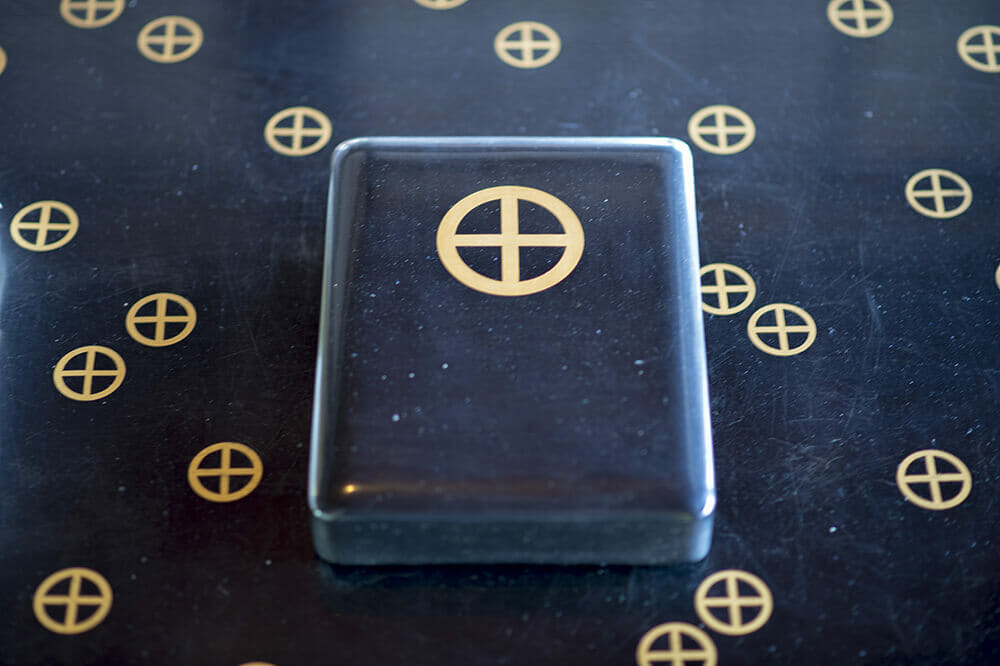
け 賢不肖用い捨つるといふ人も 必ずならば 殊勝なるべし
It is said one should employ the wise and discard the foolish. Do this with certainty and success will be certain.
While it is easy to say “surround yourself with wise people and discard the foolish”, in practice it is much more difficult to achieve. What seems wise may not be so, and a foolish idea may sometimes turn out to be the best piece of advice. By learning to judge who we should listen to and associate with we increase our chances of success.
ふ 不勢とて敵を侮ることなかれ 多勢を見ても 恐るべからず
Never be contemptuous of enemies few in number, nor have fear in the face of overwhelming odds.
We should never underestimate our enemies, even if we outnumber them. We should also never be afraid when outnumbered ourselves.
This advice proved valuable to Tadayoshi’s grandson Yoshihiro, who defeated a Ming army of 37,000 with only 7,000 men, earning him the nickname “Demon Shimadzu”. Yoshihiro later escaped from the battlefield at Sekigahara by charging through the middle of the 30,000 Tokugawa troop with only 1,500 men.
こ 心こそ軍する身の命なれ そろふれば生き 揃はねば死す
The minds of men are the life of an army. Together they live, scattered they die.
The strength of an army lies in the minds of the men that form it and their will to work together. Any loss of this cohesion will result in weakness and result in failure on the battlefield. This teaching should resound well with leaders, who must evaluate the motivation of their staff and their unity of purpose.
え 廻向には我と人とを隔つなよ 看経はよし してもせずとも
Whether you read a sutra or not, never distinguish between friend and foe when mourning the dead.
We should not distinguish between friend and foe when mourning the dead. Whatever circumstance brought both sides into conflict remains in this world, and the dead leave this behind when they slip off the mortal plane. This attitude can clearly be seen in the “rokujizo” statues that the Shimadzu clan used to leave on battlefields to pray for the salvation of allies and enemies alike.
て 敵となる人こそ己が師匠ぞと 思ひかへして 身をも嗜め
Think of your enemy as your mentor, reflect on yourself and improve.
We should see our enemies as teachers who can show us our weaknesses. We can then reflect on these weaknesses and improve ourselves. This general sense of respect even for a bitter enemy is an underlying theme in the iroha-no-uta and gives us a glimpse into the mindset of warriors striving for a sense of morality in a time ravaged by war.
あ あきらけき目も呉竹のこの世より 迷はばいかに 後のやみじは
If one would stray from the way in this world full of light, then how much more one would stray on the dark path of the afterlife.
If we are led by temptation and stray from the straight and narrow in this life, then we will almost certainly do so on the narrow, dark, and winding road of the afterlife. We are cautioned to seek enlightenment while we can in this life, in order to save ourselves torment later.
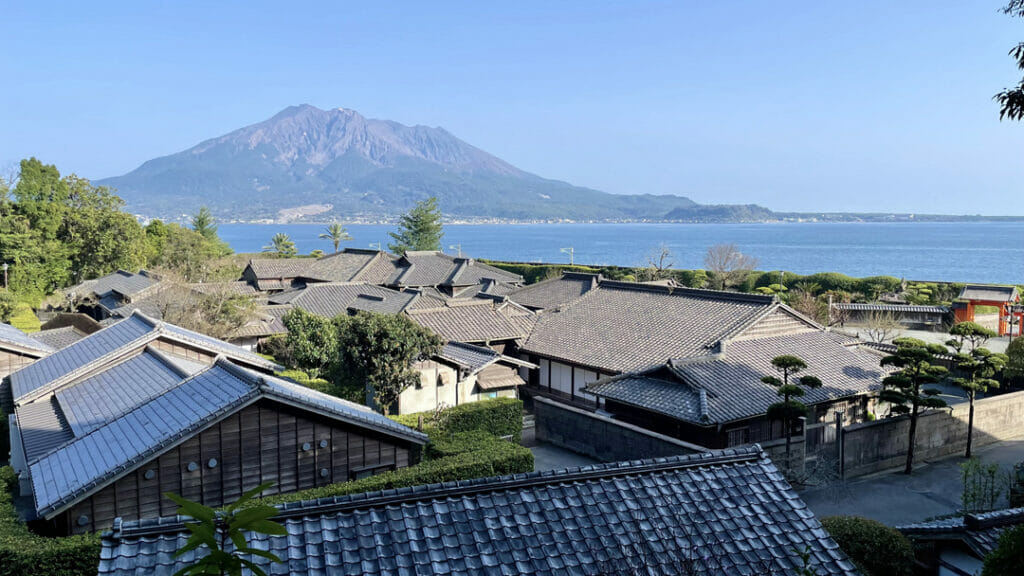
さ 酒も水ながれも酒となるぞかし ただ情あれ 君が言の葉
Wine can turn into river water and river water into wine. The words of leaders should be measured accordingly.
The thirty seventh teaching of the Iroha-no-uta is rather cryptic and assumes a knowledge of Chinese history. This teaching refers to an incident that happened to Goujian, king of the Kingdom of Yue (reigned 496–465 BC). Goujian raised an army to suppress the State of Wu and gathered a large troop of men near a river. A toast was offered to the army, but there was only a small amount of wine available, certainly not enough for all of the men. Goujian poured the wine into the river and drank the river water with his men, who went on to win a great victory in the battle that followed. In the same way that simple river water was received as if it were fine wine, the words of a leader can greatly influence the motivation of those that follow. We are encouraged to remember this event and choose our words wisely to secure the best result from those that follow us.
き 聞くことも又見ることもこころがら みな迷なり みなさとりなり
All we hear and see in this world is either confusion or enlightenment. All depends on our minds alone.
Our state of mind influences the way we see the world and that we should strive to find enlightenment in this lifetime.
ゆ 弓を得て失ふことも大将の こころひとつの 手をばはなれず
Whether the hand on the bow slips or is steady depends entirely on the mind of the general.
The thirty ninth teaching of the Iroha-no-uta uses the bow as imagery for the martial way. The way of the samurai was said to be the way of the horse and bow long before the sword. To fight as a unified force instead of becoming scattered or weak requires determined single mindedness on the part of the general, much as when drawing back a bow.
め めぐりては我が身にこそつかへけれ 先祖のまつり 忠孝の道
The way of filial piety and venerating ancestors leads only back to yourself.
The fortieth teaching of the Iroha-no-uta refers to the way of filial piety – respecting ones parents and ancestors. By respecting your ancestors and setting a good example to your own children, your descendants will thus respect you in turn. This teaching contains a hidden warning that being disrespectful to your ancestors will cause your own children to lose respect for you, something that will ultimately reflect on themselves and doom future generations of your family.
み 道にただ身をば捨てんと思ひとれ 必ず天の 助けあるべし
Commit yourself totally to following the true way, heaven will always lend a hand.
If we try to follow the true and noble way, even if things get tough we will have good fortune from above. Of course we have to think hard about what the correct way is and work hard to achieve our goals, but heaven is always watching.
し 舌だにも歯のこはきをばしるものを 人は心の なからましやは
Know the dangers posed by the minds of others as the tongue knows the dangers of the teeth.
Even the tongue knows the danger of being bitten by the teeth, yet we are lax when it comes to understanding the dangers posed by the minds of others. We are cautioned to always be aware that people may not say or do what they think and use caution accordingly.
え えへる世をさましてやらで盃に 無明の酒を かさねるはうし
What a waste to fill a cup and keep on drinking in this already drunken world.
Our world is drunken – we are not aware of our own circumstances or the suffering of others. To try and escape from suffering by drinking alcohol is a waste as we are only intoxicating ourselves further. This is not to say that the samurai did not drink – quite the opposite in fact. As with Japanese people today they were rather fond of alcohol, but we are being cautioned here to seek the truth in the world instead of trying to run away from it.
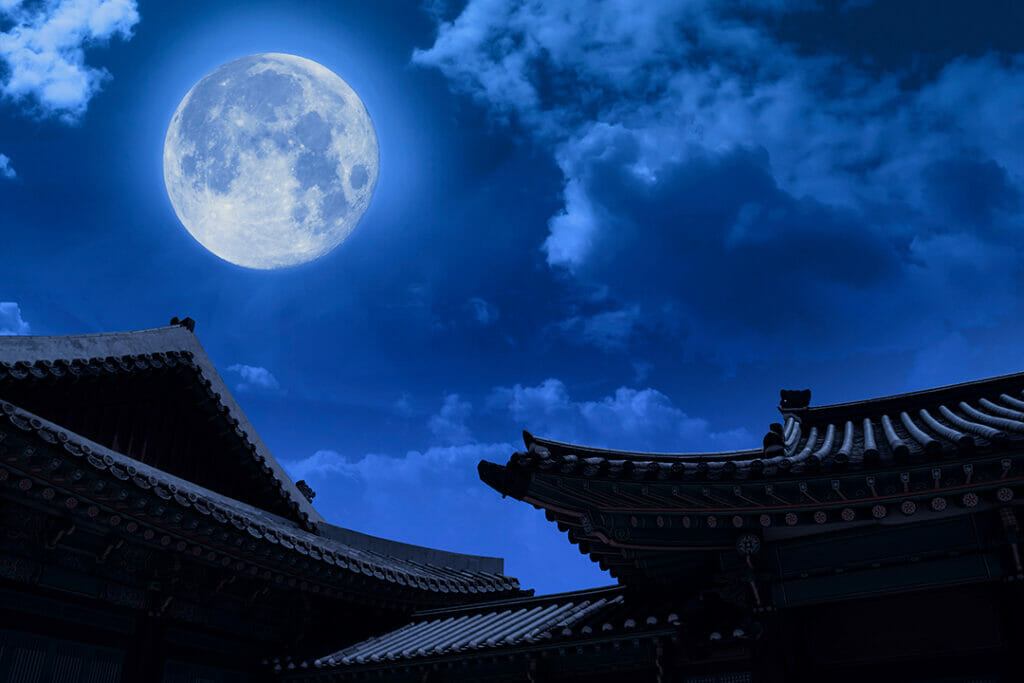
ひ ひとり身をあはれとおもへ物ごとに 民にはゆるす 心あるべし
Show kindness towards orphans and the elderly, have a heart of forgiveness for all people.
We should be kind to children with no parents, as well as to the elderly with no children. We should look to forgive the wrongdoings of others and remember that we may not know their circumstances.
も もろもろの国やところの政道は 人にまづよく 教へならはせ
In politics one should educate the people before rushing to enforce laws, no matter the land or country.
We should first try to educate and gain the understanding of those we lead instead of forcing rules upon them. During the warring states period this was of prime importance as lands were taken over by competing warlords, forcing different rule on the common people, who could be prone to rebellion if provoked with draconian new laws.
せ 善に移りあやまれるをば改めよ 義不義は生れ つかぬものなり
We are not born righteous or sinful. Make daily efforts to improve yourself and correct the flaws you find.
We are not born better or worse than anyone else and have a clean slate to work with. By trying to improve ourselves daily and reflecting on our weaknesses we can make ourselves better people through introspection and proper effort.
す 少しきを足れりとも知れ満ちぬれば 月もほどなく 十六夜の空
The moon beings to wane the night after it is full. Live your life as to be satisfied with less.
The final teaching of the Iroha-no-uta tells us that we should learn to live our lives satisfied with less than all our desires. We are reminded that the moon gradually becomes full, but just a day later it starts to wane again. In the same way our desires will never truly be fulfilled, and we will always be wanting no matter how hard we try to achieve all that we want. Instead, be satisfied with what you have and live your life with gratitude instead of desire.
